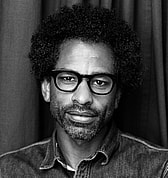Editor’s note: The following article is an op-ed, and the views expressed are the author’s own. Read more opinions on theGrio.
This is our goodbye to Paper Boi. He bought his safe farm and moved to the country, as far away from Atlanta as possible, culturally speaking. He’s got everything he needs—land, weed, guns, a whip—it’s a tractor but it’s OK.
He’s also got enemies. It’s not all gravy out there in the woods. Things can get very dangerous. There’s a wild hog that attacks him and his weed plants. There’s the tractor that falls and crushes his foot. It looks like Paper Boi isn’t that much safer than he was on the streets of Atlanta.
He also has his cousin and lifelong friend, Earn. Throughout most of the episode, Paper Boi ignores Earn’s calls, symbolic of how he’s distanced himself from the world, but after he gets injured by the hog, Earn calls and they fall right into a conversation. You can see how easy their friendship is. Their conversation about whether or not Black people can get sunburned is authentic (I could imagine having that argument), and it’s also ridiculous (it sort of recalls a “Who’s on First” routine while also reminding me of Paper Boi and Earn snapping on skin-bleached Sammy Sosa way back in “Teddy Perkins”).
As they talk, we see the energy that binds them as well as the bond that draws us to them. When you’re real friends, it doesn’t matter how long it’s been since you last spoke. As soon as y’all connect, the chemistry is right there. That’s Paper Boi and Earn. The episode ends with them talking to show how real their connection is, suggesting that decades from now, Earn will call once again and the two of them will fall right back into their familiar rapport. You can tell that they’ll always love each other.
It’s interesting that both Paper Boi and Earn’s characters have their big ending in the woods. This show about Atlanta, which made the city a vibrant character, is concluding outside of Atlanta. Perhaps the characters have grown out of the city. It was their beloved home when they were young men, but now they’re reaching another chapter in their lives, a more stable chapter, and they’ve moved out of Atlanta.
This episode is titled “Andrew Wyeth, Alfred’s World,” a title that plays out brilliantly. Wyeth is a famous American artist best known for a painting called “Christina’s World,” where a woman lies awkwardly in a field looking up at a small house in the distance. When Paper Boi escapes the tractor with his foot badly injured, he drags himself through a field recreating the image from “Christina’s World.” It’s a great sight gag that feels to me like the way Kehinde Wiley paints Black people into historical images where we did not previously exist.
Throughout its run, “Atlanta” proceeded non-sequentially so there’s not a dramatic arc to these characters’ lives, but there is an emotional arc. In the first season, Paper Boi was a rising rapper. In the second season, he was a rap star. In the third season, he toured Europe, a sign of him getting bigger. In this final season, he explored what his next chapter might look like, dipping into being a manager of terrible white rappers. Well, this is what his post-rap career looks like: He got his 40 acres and a tractor, and he’s out in the country trying to make a way. If you want to see him, you can find him tending to his marijuana plants or sitting on the porch, eating bacon and drinking whiskey. Paper Boi is probably the coolest fictional rapper we’ve ever seen on TV. He was real. Goodbye, old friend.

Touré is a host and Creative Director at theGrio. He is the host of the podcast “Toure Show” and the podcast docuseries “Who Was Prince?” He is also the author of seven books including the Prince biography Nothing Compares 2 U. Look out for his upcoming podcast Being Black In the 80s.
TheGrio is FREE on your TV via Apple TV, Amazon Fire, Roku, and Android TV. Please download theGrio mobile apps today!


